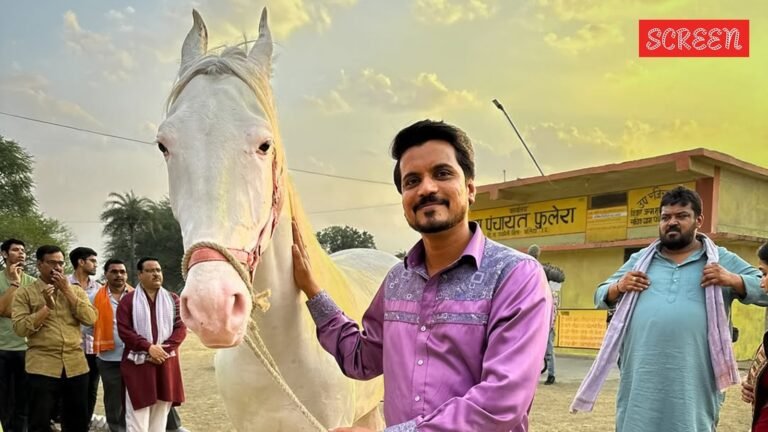
Actor Jasmin Bhasin, known for her appearance in Bigg Boss 14, recently opened up about the religious comments and trolling she faces for dating Aly Goni.
Despite coming from different religious backgrounds, the couple has built a strong and loving relationship. In a recent interview with Hindi Rush, she spoke about how she chooses her partner based on personal values rather than societal expectations. “I feel that you should have a set criteria for choosing your partner based on the things you need in life — basic respect, love, and a support system. I look at those criteria first. After that, the criteria that society has conditioned us to value are also important to me — family, upbringing, and the values I was raised with. I don’t want to let go of them. But if, because of those criteria, I have to let go of my dream partner, am I being smart or am I being stupid?”
She also reflected on how cultural and religious expectations often shape relationships, but she refuses to let go of someone who truly makes her happy. “If I meet somebody who fits all the criteria and makes me feel complete, I am not going to let go of that person. Ab duniya kuch bhi likhe, kitna bhi galat lage, jeena maine hai toh main woh decision apne hisab se lungi, chahe aapko galat lage (Now, no matter what the world writes or how wrong it may seem, I have to live my life, so I will make the decision according to what feels right to me, even if you think it’s wrong), that’s about it).
Addressing rumours about issues between their families, Jasmin clarified that while she prefers to keep things private, both families are supportive. “Many people think our family has issues, or our parents are not okay with us. But it’s not like that.”
So, how do societal expectations around religion and culture influence romantic relationships?
Sonal Khangarot, a licensed rehabilitation counsellor and psychotherapist, tells indianexpress.com, “Families and society often emphasise maintaining cultural or religious continuity, which can create pressure to conform. With the pressure to confirm comes the need to explore our diversity, we know that South Asian settings like India are multicultural in nature. Individuals are bound to meet other individuals of a different caste/community/ethnicity.”
According to the expert, here are few ways in which couples can navigate this pressure:
Acknowledge the pressure: It’s natural to want approval from loved ones, but it’s important to recognise when societal norms become a burden rather than guidance.
Story continues below this ad
Educate and set boundaries: Helping families understand the relationship rather than reacting defensively can ease resistance. If opposition remains, setting firm yet respectful boundaries protects mental well-being.
Seek support: A support system of like-minded friends or even a therapist can help couples navigate the emotional toll of societal expectations.
Why do people assume that privacy in a relationship signals family disapproval, and how can couples set boundaries without inviting speculation?
People often assume that keeping a relationship private means there is family disapproval. “This assumption comes from the belief that relationships, especially serious ones, should be celebrated openly—so secrecy is seen as a sign of conflict,” states Khangarot.
She suggests, “Privacy is about protecting the relationship from unnecessary interference, while secrecy is about hiding something. Couples should clarify their reasons for privacy. If couples don’t want unwanted speculation, they can share selective details to reduce curiosity without overexposing their relationship. Mixed signals fuel assumptions. If a couple maintains a low profile consistently, rather than hiding or revealing things selectively, it becomes the norm rather than a cause for gossip.”





